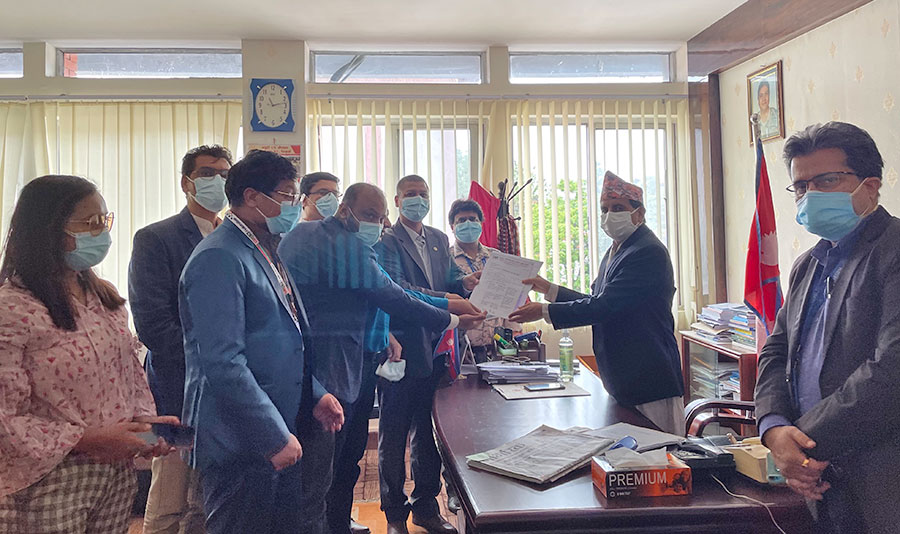Kathmandu: Computer Association Nepal (CAN) Federation, Center for Cyber Security Research and Innovation and Information Security Response Team Nepal has suggested the government to build secure cyberspace within a year.
Giving their views on the draft of the National Cyber Security Policy, 2021 made public by the Ministry of Communications and Information Technology on June 28, the three organizations have urged to formulate laws and institutional structure on sensitive issues like cyber security as soon as possible.
The draft policy proposes three years for building secure cyberspace and five years for building institutional and organizational infrastructure.
A delegation comprising representatives of three organizations handed over the suggestions to Secretary at the Ministry of Communications and Information Hari Prasad Basyal.
The delegation, including the Center for Cyber Security Research and Innovation and Information Security Response Team Nepal, has given its opinion on the policy’s request for suggestions and support.
Led by CAN Federation President Navraj Kunwar, CAN President Hemant Kumar Chaurasia, General Secretary Narayan Thapa, Working Committee Member Subhas Khadka, Center for Cyber Security Research and Innovation President Pvt. Dr. Suvarna Shakya, Vice President Roja Kiran Vasukala, General Secretary E. A delegation including Shalikgram Parajuli, Working Committee Member Ganga Bhandari, Information Security Response Team Nepal Chairperson Chiranjeevi Adhikari, Working Committee Member Suresh Bhandari called on Secretary at the Ministry of Communications and Information Technology Basyal. It is also suggested to make a law.
Periodically examine the institutional security policies of private and public entities that collect, process, use and store sensitive citizen data, and build infrastructure to exchange data with national and international service providers for data security, data governance and personal privacy of citizens’ online identities and cyber insurance laws. It has also been requested to make it.
As cyber security is not only a technical issue but also a political, social and economic issue, it calls for the formulation of cyber security guidelines to address it from all quarters, the creation of security operations centers including risk intelligence reporting and cyber help desks and the development of digital infrastructure including digital blockchain for cyber security information exchange. Has been done.
Giving suggestions in the draft policy in 23 points and giving opinion in 34 points for additional provision, it has been said that government, non-government bodies and private sector organizations should make digital signature accessible or free.
Similarly, to upgrade Nepal in Global Cyber Security, conduct regular studies, research and innovation on cyber security, prepare National Cyber Security Framework, prepare Cyber Security Master Plan, establish Cyber Security Research Center in each University and develop local relations to reduce global cyber security risks. And new points such as joining a global coalition have been suggested to be added to the policy.
The delegation also called for the formation of a working group to encourage ethical hackers and to review security management, incident management, risk identification and vulnerabilities.
